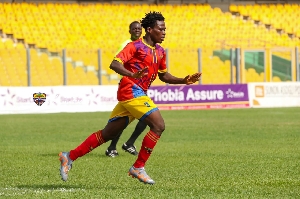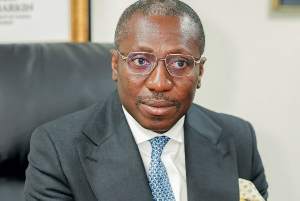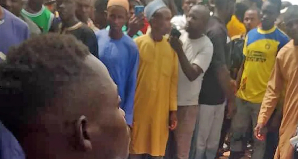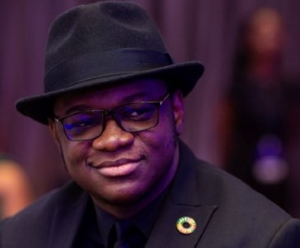Mr Jake Obestebi-Lamptey, Minister of Information and Presidential Affairs, on Monday said the Constitution should be considered as a common property and part of the national culture, "if the country is to escape from its unconstitutional past of, political instability and chequered economic development".
He said, "we have to cultivate the culture of making our constitutional democracy part of our national culture and to continually remind ourselves that democracy, well nurtured and sustained is the path to peace and prosperity".
Mr Obestebi-Lamptey stated these at the Second Constitutional Week cerebration in Accra, organised by the National Commission for Civic Education (NCCE). The Week, under the theme: "The Constitution, Cultural Values and Good Governance," would focus on traditional authority in the contemporary democratic dispensation.
It would also contribute to the development of the spirit of constitutionalism and eventually make the 1992 Constitution a living document and also part and parcel of the daily lifestyle of all citizens.
The Minister said, "under our history of unconstitutional rule with its erosion of personal freedom, restrictions on media pluralism and national well being normally generated by individual and economic entrepreneurship, we have no choice but to ensure the preservation and sustenance of our Constitution, as a national imperative."
Mr Obestebi-Lamptey described Ghana's democracy as the bedrock for peace, prosperity and economic development and a solace for protection of individual fundamental rights. He, however, noted that the challenge that confronted the nation was how to ensure the strengthening of the cultural base of the Constitution.
The Minister suggested the production of pocket editions and to generally make it as available and readable as the modern versions of the Bible and urged the NCCE to intensify its translation into local languages.
Mr Obestebi-Lamptey also called on the media to maintain its gate-keeping role of the democratic dispensation. He urged the NCCE to develop a collaborative network with the Ghana Journalists Association to educate the citizenry of their civic rights and responsibilities.
Mr Laary Bimi, NCCE Chairman said emphasis on the cerebration was to make the Constitution become a living document embossed on the minds and hearts of the people for the attainment of democracy and good governance in Ghana.
He said over 80 per cent of the population was indirectly governed by traditional rulers but the Constitution failed to recognise it, explaining that in the rural areas traditional authority superseded state authority and this had been the remote cause of some of the conflicts in the country.
Mr Bimi said, "Ghanaians need to develop the culture of democracy, the courage to resist violation of their human rights and the tenacity to resist dictatorship of all forms and, more particularly and fundamentally any overthrow or attempted overthrow, of government".
Mr Bimi also called for the studying of the traditional system of the enstoolment of an individual as a chief and the constitutional swearing in of the President. He suggested that the traditional period of confinement to prepare the chief should be adopted to prepare the country's Presidents-elect to understand the dictates of leadership before assuming that role.
Odeneho Gyapong Ababio, President of the National House of Chiefs, who chaired the occasion, said it was obligatory for each citizen to protect the Constitution and to resist any attempt by an individual or group of people to abrogate it.
He said the Constitution mandated the government to rule for four years after which collectively the people had a responsibility through the ballot box to either renew its mandate or vote for another.
General News of Tuesday, 30 April 2002
Source: GNA












